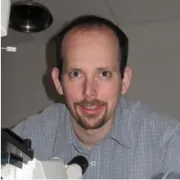Human sperm quality constantly declines, resulting in a worldwide fertility crisis. We will develop a new multidisciplinary
microscopy approach for ultra-rapid 3D label-free fine-detailed imaging of live sperm cells during free swim without staining,
with pioneering technological capabilities and revolutionary clinical implications.
Our approach is based on optical interferometric tomography for ultra-rapid 3D refractive-indexmapping with correlation with
fluorescence nanoscopy. Success of this project is expected to end in a new understanding of how to choose the best sperm cells
for in vitro fertilization (IVF) without the need for cell staining, as well as optimized ways to characterize male infertility problems
and adapt personalized medicine treatments.
There is no method today to image sperm cells in 3D during free swim in high resolution.
The sperm cells not only move very fast, they are also mostly transparent under regular 2D light microscopy, and cell labeling is
prohibited in human IVF. In the common procedure, the clinician chooses sperm cells without being able to characterize them well,
while bypassing the mechanisms of natural selection of sperm cells in the woman’s body, which results in low success rates. Our
approach will enable dynamic-sperm 3D virtual staining, centriole imaging and DNA fragmentation analysis in live individual sperm
cells without staining. This is expected to unmask the interplay between live sperm 3D dynamics and fine-detailed morphology and
contents, potentially revealing new critical mechanisms, dramatically improving success rates in IVF.
Human-sperm-cell full refractive-index mapping via ultra-rapid cell 3D tomography

Prof. Natan Tzvi Shaked
Department of Biomedical Engineering, the faculty of Engineering
Prof. Shaked directs the Optical Microscopy, Nanoscopy and Interferometry (OMNI) research group. The group develops new experimental and analytical tools for 3D interferometric imaging of biological cells and thin elements that uniquely combine label-free wave-front sensing and imaging approaches, providing deep data by quantitative morphological and contents cellular imaging, with Artificial Intelligence (AI) by novel approaches for deep learning (‘Deep2Deep’).
Specific subjects of interest:
Technology Development
Deep-learning platforms for biological cell classification
Deep-learning platforms for biological cell virtual staining
Rapid label-free wave-front imaging and sensing of biological cells
Portable interferometric modules for clinical use
3D refractive-index live-cell tomography
Interferometric nanoscopy
Clinical Applications
Sperm selection for IVF
Cancer cell analysis in liquid biopsies